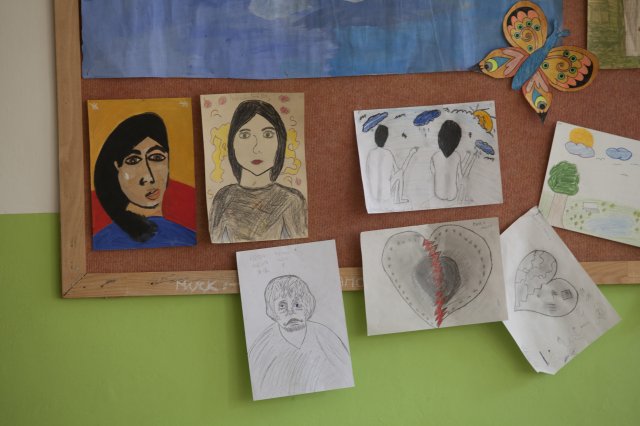Segregation: A Presidential Policy in Prague?
23 January 2015
School segregation does not lead to equality or happiness; promoting it is divisive. It damages the educational prospects of children and contradicts the letter and spirit of binding domestic and international laws.
 The European Roma Rights Centre (ERRC) and the Mental Disability Advocacy Centre (MDAC) express our serious concern about a public statement made by Czech President Miloš Zeman last week in which he advocated that children with disabilities and Romani children should be kept separate from other children in the Czech education system. During his visit to a children’s re-education home in Brandýs nad Orlicí, the President explicitly criticised inclusive education:
The European Roma Rights Centre (ERRC) and the Mental Disability Advocacy Centre (MDAC) express our serious concern about a public statement made by Czech President Miloš Zeman last week in which he advocated that children with disabilities and Romani children should be kept separate from other children in the Czech education system. During his visit to a children’s re-education home in Brandýs nad Orlicí, the President explicitly criticised inclusive education:
The comments provoked widespread attention in the media and criticism from civil society. The media paid less attention to the President’s attacks on multiculturalism in education, a veiled reference to Roma. Large numbers of Romani children are segregated in the Czech education system, a practice which has been condemned internationally and by the European Court of Human Rights. The President’s full comments were as follows:
"… Surely I could further elaborate on this, I could speak about bullying, about the fact that the speed of a group of cars is determined by the speed of the slowest, hence teachers cannot dedicate their attention to, let’s say, more talented children. I personally believe this is not racism, not a preference for any ethnic group, but that children are far happier when they are in a community of their equals than when they are placed into [a different] community [...] So I really just love all that multiculturalism. I believe it was invented by crazy intellectuals in a café in Prague who have never been to a school today, or if they have, they spent maybe half an hour in one. Well, whatever they saw there was just a Potemkin village. In other words, I am against inclusion […] , so if you want to know my opinion, I don't like it at all and I am against it."
In response to massive criticism, the President’s spokesperson stated that there was no intent to offend “physically handicapped children”. The President only expressed his wish to maintain the system of practical school for children who ‘need them’.
President Zeman’s statements lack credibility and are irresponsible, particularly in the context of ongoing education law reform in the country. They contribute to the perpetuation of segregated education in the Czech Republic, violating the government’s obligations under the EU Race Equality Directive, the European Convention on Human Rights, and the UN Convention on the Rights of Persons with Disabilities. They also undermine commitments made by the government to transform the school system progressively and include all pupils in mainstream education. These commitments include the Strategy for Combating Social Exclusion for 2011-2015 (the Strategy) and the government’s recent response to the European Commission, which in September 2014 launched infringement proceedings against the Czech Republic for denying the right to equal quality education to Romani children.
The pace of reform to end segregated education and promote inclusive education has been slow, including little action to implement the now seven-year-old European Court of Human Rights (ECHR) judgment in the case of D.H. v the Czech Republic. In that case, the Grand Chamber of the ECtHR ruled that the Czech Republic unlawfully discriminated against Romani pupils by offering them an inferior education in segregated schools designed for pupils with intellectual disabilities and disproportionately attended by Roma. Defending segregated education for children with disabilities also falls foul of Article 24 of the UN Convention on the Rights of Persons with Disabilities, which requires the Czech government to ensure that all children benefit from an inclusive education.
ERRC and MDAC stand together with those who protested against President Zeman’s statements, including children with disabilities, parents, siblings, education experts, sociologists, members of the government (Ministers of Human Rights, Labour, Education), the Ombudsperson, and national NGOs including the League of Human Rights.
We support the online petition demanding an apology from President Zeman. In its letter launching infringement proceedings against the Czech government, the European Commission pointed out that the government must eliminate the ethnic segregation of Romani children in education in society, and not merely amend relevant laws. The President’s discriminatory statements clearly indicate that the country still fails Romani children and children with disabilities, denying them an inclusive education and the possibility of becoming included in society.
ERRC and MDAC urge the President and other Czech public officials to expressly support inclusive education reforms and to take concrete actions to end all forms of educational segregation.
For more information, contact:
Marek Szilvasi
Research and Advocacy Officer
European Roma Rights Centre
+36 1 413 2200
marek.szilvasi@errc.org




